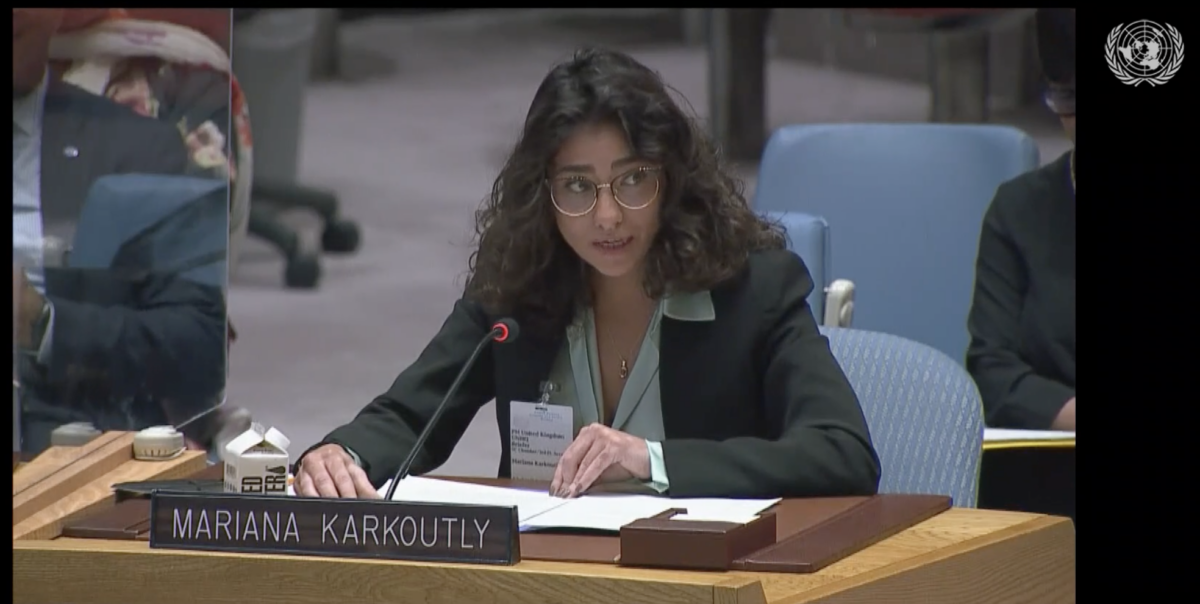Syria & Golan Heights
Syria & Golan Heights
Since 2011, Syria has been on the United Nations Security Council’s agenda, when President Assad’s aggressive actions against pro-democracy protesters during the Arab Spring became more frequent and increasingly violent, leading to civil war and terrorist violence within the country.
Insecurity is the primary concern for women, yet in spite of their limited operating environment, women activists have organized nonviolent protests, distributed and monitored humanitarian aid, documented human rights violations, created safe spaces for women and children, and worked at the local level to set up ceasefires, prisoner releases, and elections.
Based on the work of NGOWG members and their partners, the NGOWG advocates for ensuring women’s needs— such as secure access to sanitation facilities and hygiene, and health assistance— are adequately addressed, and that Syrian women are equally and meaningfully participating in the UN-facilitated political process and in the design and implementation of ceasefire monitoring mechanisms.
Golan Heights
Golan Heights, a disputed plateau in south-western Syria, is home to an equal number of Syrians and Jewish settlers, and since 1973, United Nations Disengagement Observer Force (UNDOF) peacekeepers have observed a contested territorial line between Israel and Golan Heights.
In the current Syrian conflict, Golan Heights has become a key strategic geopolitical position, causing an escalation in violence and increased violations of the ceasefire territorial agreements. Recent advances and attacks by the Islamic State of Iraq and the Levant (ISIL) have concerned residents of Golan Heights— particularly given ISIL’s systematic denial of women’s rights and perpetuation of violations against women.
Based on the work of NGOWG members and their partners, the NGOWG advocates for addressing the increasing gender imbalance in UNDOF by deploying a higher percentage of women, and inclusion of gender-specific language in the UNDOF mandate.
Current and Past Recommendations to the UN Security Council (Monthly Action Points)
The Council is expected to remain engaged on the situation in Syria, particularly as it discusses the expected report on resolution 2139 (2014) on humanitarian access. Rather than facilitating full implementation, parties to the conflict are in many cases preventing necessary humanitarian services from reaching critical areas in need. Coordination and consultation with Syrian civil society must be increased to devise localized plans for relief efforts to meet the unique needs of each area. The humanitarian community must also continue to appropriately meet the specific needs of refugees created by the non-camp settings, where over 85% of refugees reside. Without adequate service provision and support services, displaced women and girls, particularly those with disabilities and those separated from their families, remain at greater risk of sexual and gender-based violence and are not able to meet their basic needs. In Jordan, there are knowledgeable and effective women’s groups who could greatly assist in this work.
The civilian population in Syria continues to be subjected to a broad range of human rights violations, particularly the arbitrary arrest and detention of peaceful activists including many women and girls. The Council is strongly urged to pursue measures calling for accountability regarding the full extent of arbitrary detentions. These measures should call on all parties to the conflict to release the names of those detained and provide such individuals with a fair trial.
In addition to following up on SCR 2139 and 2165, the Council should call for the implementation of SCR 2122 (2013) to ensure women’s participation in all political efforts to resolve the conflict, including the inclusion of a Technical Expert Support Team comprised 50% of women in the next rounds of peace talks, assigning capable gender advisers to the UN Special Envoy and negotiating teams, and stronger consultation of grassroots women groups and civil society representatives to inform the content and outcome of the negotiations.
The Council is expected to remain engaged on the situation in Syria, particularly as it discusses the expected report on resolution 2139 (2014) on humanitarian access. Rather than facilitating full implementation, parties to the conflict are in many cases preventing necessary humanitarian services from reaching critical areas in need. Coordination and consultation with Syrian civil society must be increased to devise localized plans for relief efforts to meet the unique needs of each area. The humanitarian community must also continue to appropriately meet the specific needs of refugees created by the non-camp settings, where over 85% of refugees reside. Without adequate service provision and support services, displaced women and girls, particularly those with disabilities and those separated from their families, remain at greater risk of sexual and gender-based violence and are not able to meet their basic needs. In Jordan, there are knowledgeable and effective women’s groups who could greatly assist in this work.
The civilian population in Syria continues to be subjected to a broad range of human rights violations, particularly the arbitrary arrest and detention of peaceful activists including many women and girls. The Council is strongly urged to pursue measures calling for accountability regarding the full extent of arbitrary detentions. These measures should call on all parties to the conflict to release the names of those detained and provide such individuals with a fair trial.
In addition to following up on SCR 2139 and 2165, the Council should call for the implementation of SCR 2122 (2013) to ensure women’s participation in all political efforts to resolve the conflict, including the inclusion of a Technical Expert Support Team comprised 50% of women in the next rounds of peace talks, assigning capable gender advisers to the UN Special Envoy and negotiating teams, and stronger consultation of grassroots women groups and civil society representatives to inform the content and outcome of the negotiations.
Relevant Resources









